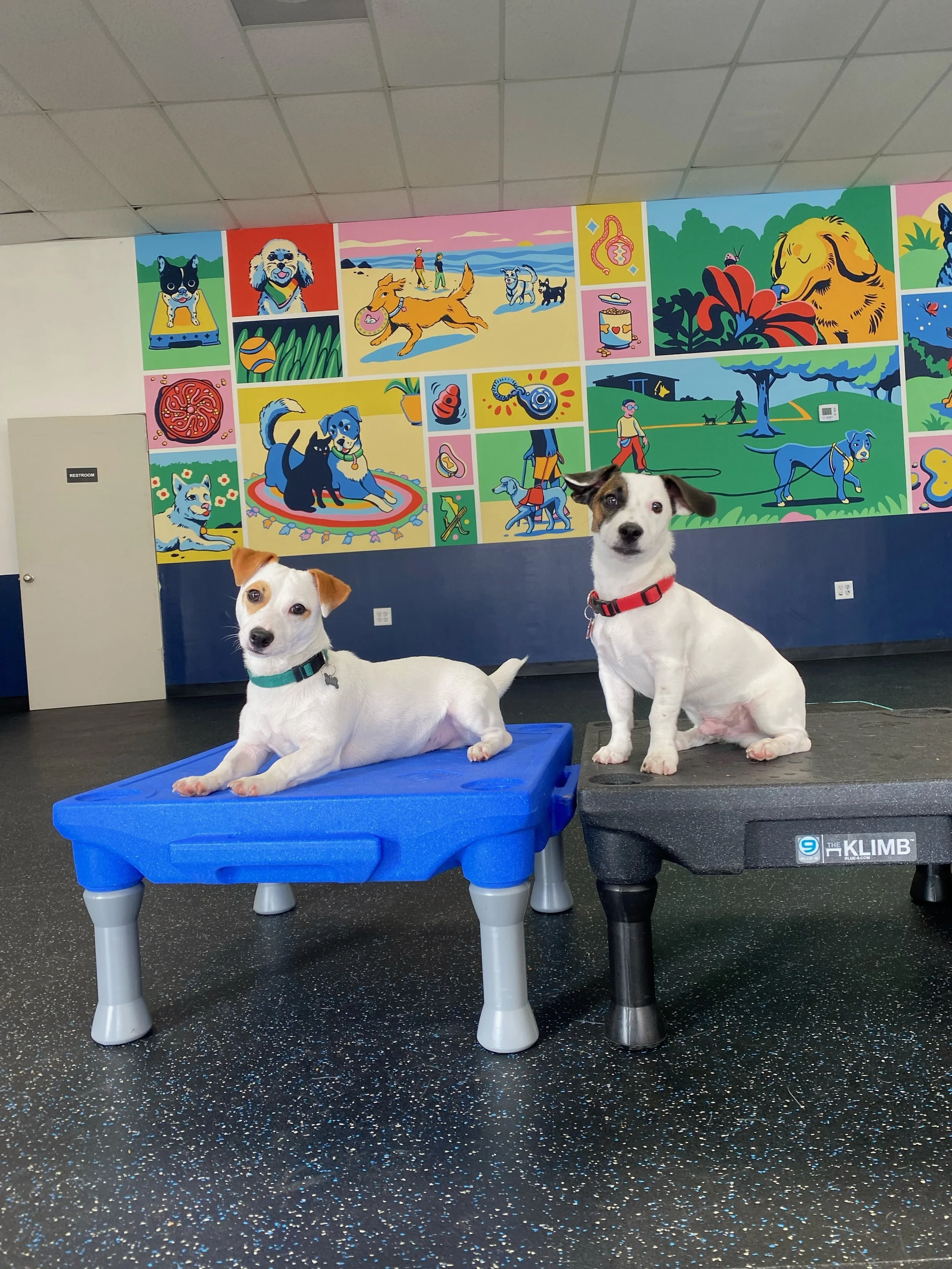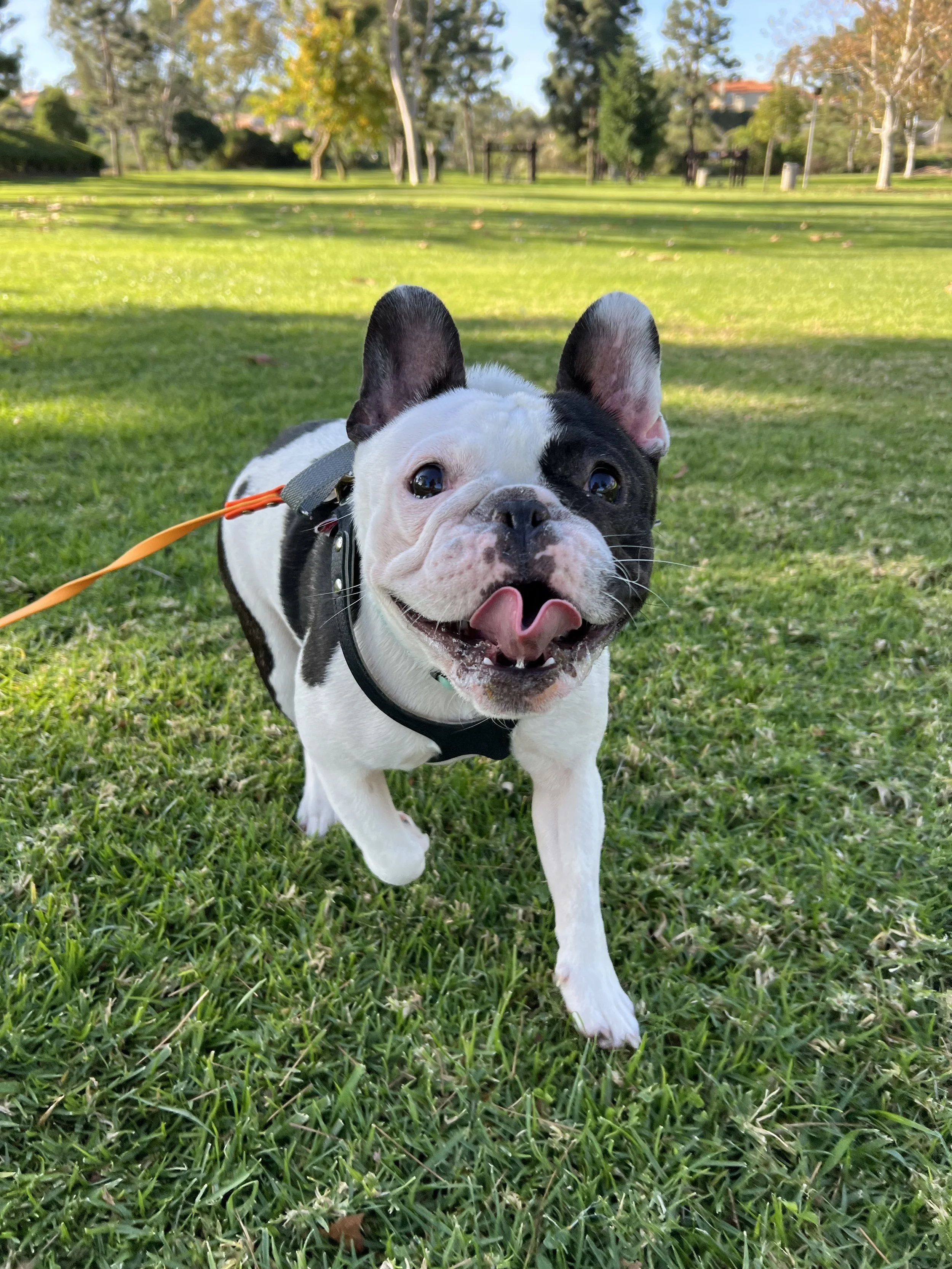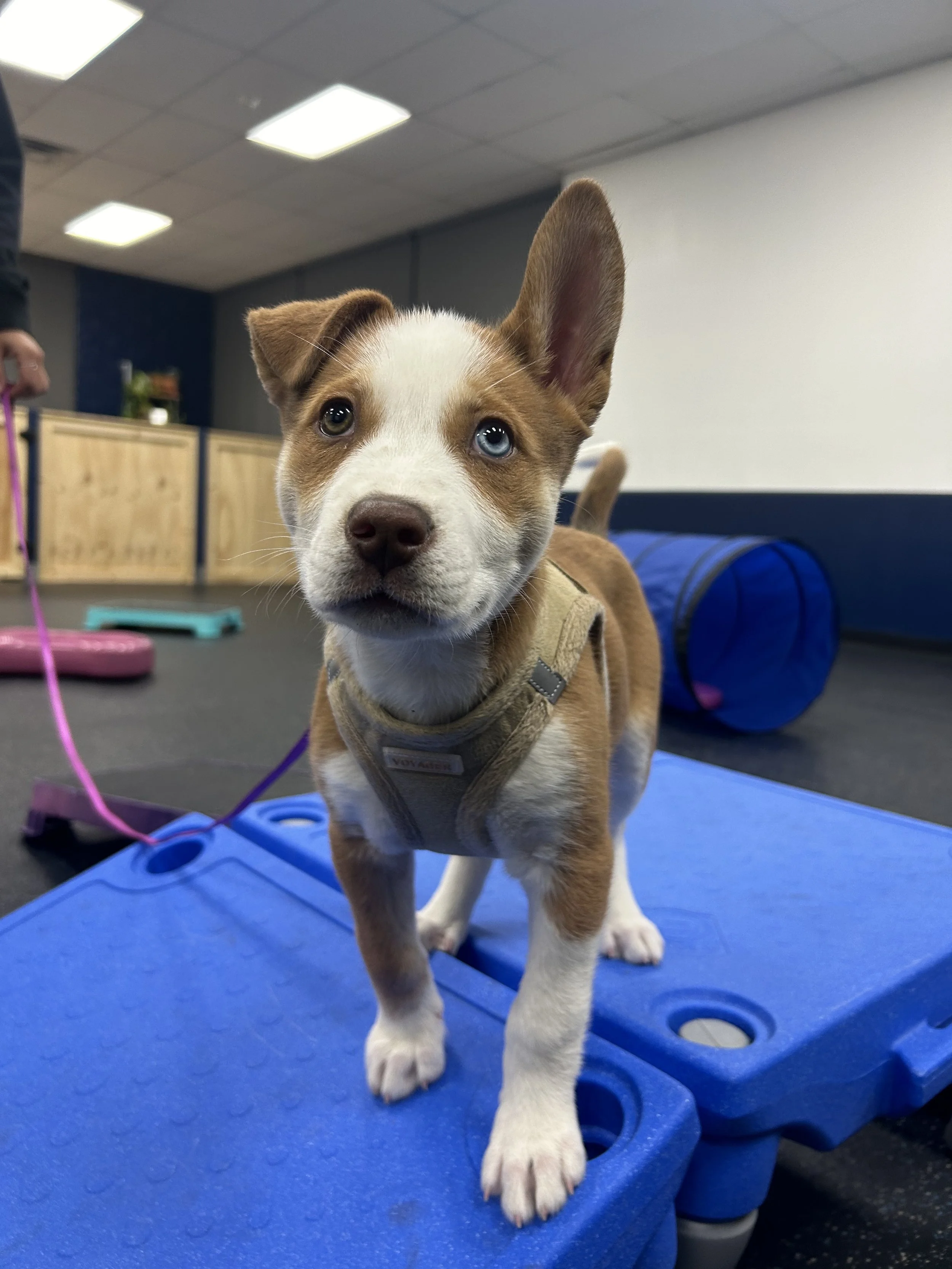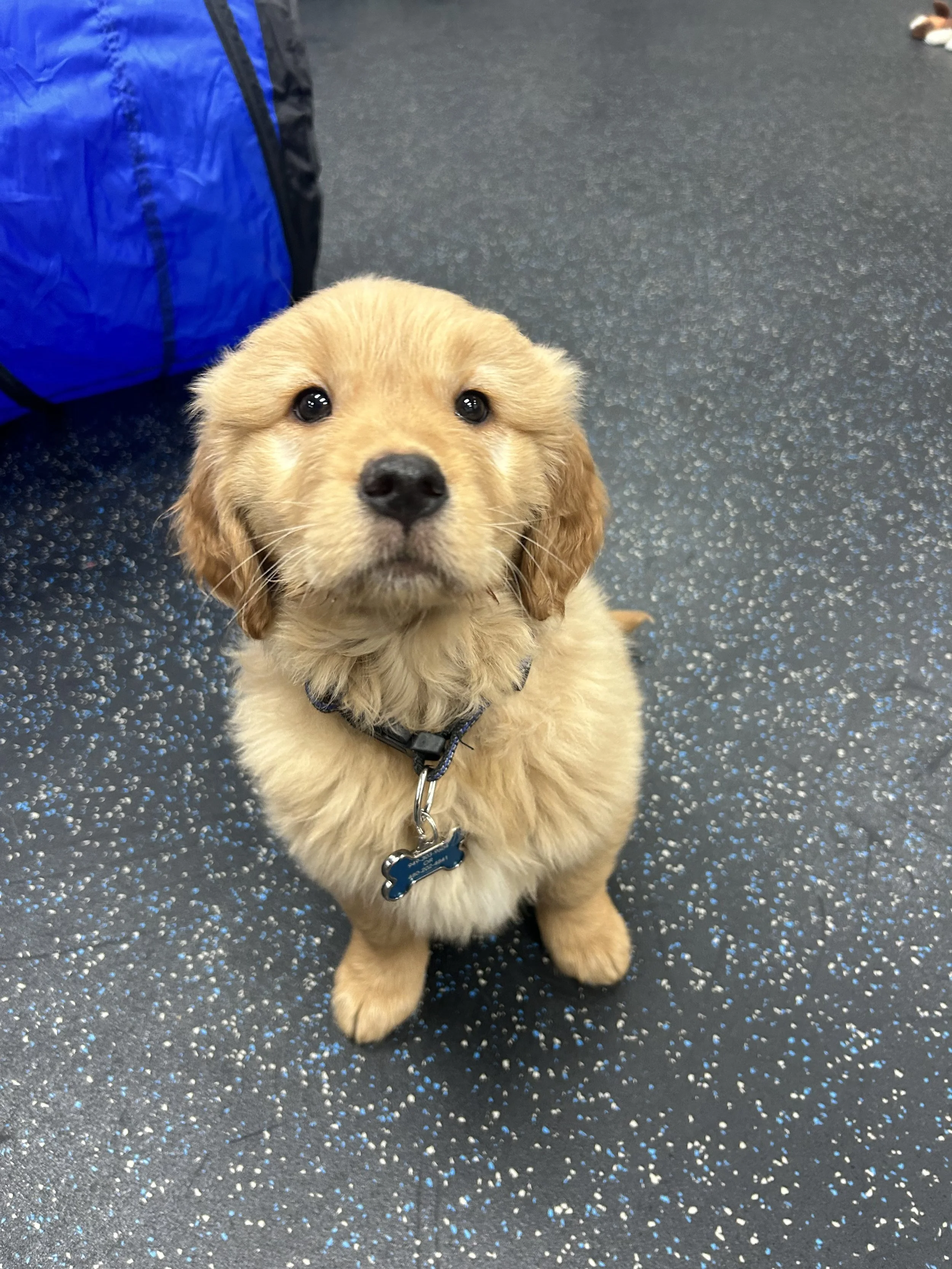Puppy Socialization Classes: When, Why and How Do You Socialize a Puppy Safely?
IN THIS ARTICLE:
When should you socialize your puppy?
Why should you socialize your puppy?
How do you keep puppies safe when socializing them?
How do you socialize a puppy?
What does a puppy vaccination schedule look like?
Clickstart’s puppy classes
When should you socialize your puppy?
Many pet parents feel confused about when to begin this process. Puppies have a critical socialization window, which is a short time period during which they are especially “influence-able.” This is the time when we can have a positive influence on them to teach them that novel environments, people, and other dogs are not scary, but fun!
A puppy’s critical socialization window is approximately 7-16 weeks of age. Ideally, puppies should start class when they are between 9-10 weeks old, and should complete their series of classes before they turn 16 weeks old.
Puppies also need to undergo a series of vaccinations during this period of their life. It can be challenging to balance the safety needs of a puppy who is not fully vaccinated with the need to socialize them at this time. But don’t worry — it’s very possible to do it safely!
The American Veterinary Society of Animal Behavior (AVSAB) advocates for beginning puppy socialization before the puppy is fully vaccinated, stating that “it should be the standard of care for puppies to receive such socialization before they are fully vaccinated.”
Why should you socialize your puppy?
Socializing lays a crucial foundation for a calmer and more confident dog. A properly socialized dog is more likely to tolerate a wider variety of situations later in life, and less likely to have fear-based issues around novel situations. Simply put, well-socialized dogs are better equipped to handle the world.
How do you keep puppies safe when socializing them?
Trainers should take specific, rigorous safety precautions when conducting group classes with puppies who are not fully vaccinated. These should include:
Making sure all puppies are in the same age group (no older puppies who are fully vaccinated and going on walks outside the home)
Disinfecting the space before and after every class
Requiring all humans to disinfect their shoes before entering class, and upon re-entering
Don’t be afraid to ask trainers about their safety protocols for puppy classes. A good trainer will be happy to answer these questions. If they aren’t, consider it a red flag and look elsewhere!
How do you socialize a puppy?
The goal of socialization is to acclimate a puppy to the people, objects and environments they will encounter in the human world. Socializing puppies involves exposing them to a wide variety of novel stimuli and pairing those stimuli with positive feelings. In a puppy socialization class, this will look like:
Letting puppies explore a safe environment filled with a variety of objects they can sniff, climb on, walk under, etc
Introducing puppies to handling and grooming slowly and intentionally
Learning basic training cues to help puppies navigate the world with their handlers
Desensitizing puppies to a variety of sounds
These are just a few examples. The possibilities of socialization are almost endless! But don’t worry — you don’t have to introduce your puppy to every object and person in existence in order to socialize them. It’s enough to instill in them a sense of confidence and curiosity about the world.
What does a puppy vaccination schedule look like?
Puppies receive two categories of vaccines: core and non-core vaccines. Core vaccines are administered by a veterinarian to all dogs. Non-core vaccines are administered on a case-by-case basis. Whether your puppy needs non-core vaccines depends on various factors, like lifestyle and where you live.
Below is a typical puppy vaccination schedule. Note: your puppy’s exact schedule may vary based on your veterinarian’s recommendations.
6-8 weeks:
Core vaccines: distemper, parvovirus
Non-core vaccines: Bordetella
9-12 weeks:
Core vaccines: DHPP
Non-core vaccines: Canine influenza, leptospirosis, bordetella, Lyme disease (dependent upon lifestyle and location)
16-18 weeks:
Core vaccines: DHPP, rabies
Non-core vaccines: Leptospirosis, Canine influenza, bordetella (if recommended by your vet - can come later)
12-16 months:
Core vaccines: DHPP, rabies
Non-core vaccines: Coronavirus, leptospirosis, bordetella
Puppy fear periods
Puppies go through fear periods, during which they may seem suddenly spooked by objects or situations they were not previously afraid of. These are developmentally normal periods when a puppy is learning what is and isn’t safe in the world.
A dog’s early fear period typically occurs between 8 and 11 weeks, while the second one usually starts between 6-14 months.
During the 8-11 weeks fear period, our goal is to minimize stressful situations while actively showing our puppy that the world is not scary. We can do this with classes like puppy preschool and puppy kindergarten, where we prioritize pairing novel situations (like new sounds, people, and textures) with positive reinforcement (lots of puppy-safe treats!).
Clickstart’s puppy classes
Clickstart’s puppy preschool and puppy kindergarten classes are vet-approved for puppies 9-16 weeks old who are not yet fully vaccinated. We have regular conversations with veterinarians we trust to make sure we are up to date with their recommendations.
Our puppy kindergarten is a 4-week open enrollment class that includes training, exploration, handling and play in every class. You can also add on two Puppy Preschool classes if you’d like to earn your AKC S.T.A.R Puppy (Socialization, Training, Activity, Responsibility) certificate. And your first day of kindergarten is free! (Just enter code 1STDAYOFSCHOOL at checkout.)
Need more information, or not sure where to start? Schedule a free discovery call with us!
REFERENCES:
https://www.preventivevet.com/dogs/puppy-vaccine-schedule
https://www.akc.org/products-services/training-programs/canine-good-citizen/akc-star-puppy/
Social, Civil, and Savvy: Training & Socializing Puppies to Become the Best Possible Dogs (Laura VanArendonk Baugh, CPDT-KA, KPA CTP, 2017)





